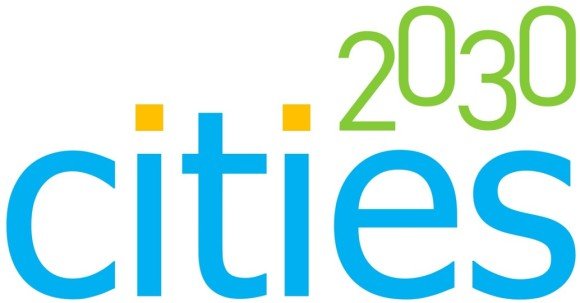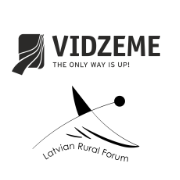Living: Innovation action plan
1. CRFS vision 2030 and challenge statements
CRFS 2030 vision: CRFS future vision 2030: An organised environment of short food supply chains, ensuring the production, consumption and availability of healthy, locally produced products and food, as well as direct collaboration with stakeholders, united by reliability, predictability, collaboration, education and continuous information sharing, using the capabilities of digital technologies.
Challenges:
-
Green public procurement does not ensure the needs of sustainable and resilient regional food chains, including complex procurement systems and procurement preparation processes, lack of knowledge of existing employees who provide preparation and management of quality procurement processes, incl. preparation of technical specifications, as well as potential suppliers on procurement requirements and its aspects; the uncertainty about the volume specified in existing procurement; lack of data about the potential suppliers.
-
Lack of short food supply chains and diverse forms of cooperation, including public-private partnership, in smart villages and towns.
-
Stale, inflexible food supply system, stagnant business models, production, storage, and delivery solutions.
-
Lack of awareness about healthy food.
2. Collaboration with stakeholders
Vidzeme LL is focusing on multi-actor approach and is open for interested participants from different areas. During the project, various participants were identified, starting from manufacturers, municipalities to consumers. VPR works mostly with municipalities and its institutions, LRF focuses on local action groups, entrepreneurs, nutritionists, consumers, producers and researchers.
3. Living Lab resources
The resources for the experiments are secured through the budget of the project partners – LLF and VPR. However, the involvement of external partners is needed (external resources, e.g., working time of teachers, voluntary support of the food council).
4. Living Lab experiments
Experiment #1: Promoting healthy food awareness During the experiment, children from kindergarten were introduced to the local farm and its production through different activities, like viewing animals, getting to know the vegetable field, cooking together from the eggs found, as well as creative activities, during which the healthy vegetable plate was created. The team was created from local producers, municipality, LAG, representatives of kindergarten, the nutritionist and the moderator of the event. Kids were excited to see where the food comes from and that healthy food is tasty and it is easy to cook. The producers were happy to have such cooperation to promote local products and to strengthen the formation of the short food chain between local producers and consumers, including institutions of municipality.
The experiment contributes to: Secure healthy and sustainable food; Develop food culture and skills. The experiment is associated with: Consumption; Inclusion, equity; Distribution.
Study questions, hypotheses, and assumptions: Introducing children to the origin of food promotes their healthy eating habits; Direct communication between producer and consumer ensures trust and sustainability of cooperation in the promotion of short food chains.
Target group(s) of the experiment: Children, producers, municipality institutions.
The monitoring system to gather data from the experiment:
- Kindergarten teacher, who will observe changes in the behaviour of children and their parents and record the following aspects: Children’s attitudes towards eating; Cooperation and involvement of children's parents in similar events.
- The farmer will inform about the municipality’s interest in cooperating in the promotion and support of such classes.
Timeframe for the experiment cycle: Ideation – April-August 2022, building of the experiment – September 2022, Monitoring – October 2022, Learning – October 2022.
Experiment #2: Creation of a pre-procurement negotiation table Public green food procurement participants and involved persons will be invited to the same table to jointly discuss needs, opportunities, rules, cooperation opportunities from both the consumer’s and the supplier’s side, thus creating a unified model for improving the food procurement procedure. A representative of the local action group, who is directly interested in the development of short food supply chains in their territory, will be invited as a mediator.
The experiment contributes to: Secure healthy and sustainable food; Develop food culture and skills; Enhance circularity and local food belt. The experiment is associated with: Consumption; Inclusion, equity; Distribution; Production; Markets; Waste; Security; Livelihood, growth.
Study questions, hypotheses, and assumptions: Before starting the procurement procedure, the municipality’s joint negotiations with potential suppliers and other involved parties will allow to understand the situation and give an opportunity to define procurement specification criteria for strengthening short food supply chains with understanding; Producers will be able to plan their participation in procurement; The transparency and mutual trust and fairness will be promoted.
Target group(s) of the experiment: Consumers; Producers; Municipality institutions.
The monitoring system to gather data from the experiment: Surveys after the event. Timeframe for the experiment cycle: Ideation – May-October 2022, building of the experiment – November 2022, Monitoring – November 2022, Learning – November 2022.
Experiment #3: Increasing the capacity of local municipalities and their education and social care institutions to carry successful green procurements of food and catering services During the experiment, participants – procurement specialists, lawyers, managers and other staff responsible for organisation and provision of procurements – will be trained and will get consultative support to apply green public procurement regulations and principles in a way that will enable them to ensure healthy food in the education and social care institutions. Objectives of the experiment: To increase capacity of regional stakeholders to organise highly efficient food and catering services procurements, thus creating preconditions for securing healthy and sustainable food and strengthening short local food chains.
The experiment contributes to: Secure healthy and sustainable food; Enhance circularity and local food belt.
Study questions, hypotheses, and assumptions: How to apply existing legal base set for public green procurements in order to enable capacity to procure local, healthy, sustainable food? Target group(s) of the experiment: Direct: Local municipalities, and their education and social care institutions; Indirect: Consumers: children attending kindergartens and schools, clients of social care institutions; Indirect: Regional primary food producers and processors.
The monitoring system to gather data from the experiment: Questioning of respective stakeholders: local municipalities and direct organisers of food procurements. Timeframe for the experiment cycle: Ideation – April-September 2022, building of the experiment – October 2022-February 2023, Learning – March 2023.
Experiment #4: Increasing capacity of caterers at education institutions to ensure balanced, healthy food. Participants were specialists responsible for catering will get consultative support to develop healthy menus containing locally produced products and having well balanced nutritional value at the education institutions.
Objectives of the experiment: To increase capacity of regional stakeholders to provide and local products based well balanced nutritional value menus within the existing financial possibilities at the education institutions.
The experiment contributes to: Secure healthy and sustainable food, Enhance circularity and local food belt.
Study questions, hypotheses, and assumptions: How to ensure local products based, well balanced nutritional value menus at the education institutions? Target group(s) of the experiment: Direct: Specialists, companies responsible for catering at education institutions. Indirect: Consumers: children attending kindergartens and schools
The monitoring system to gather data from the experiment: Questioning of respective stakeholders: specialists, companies responsible for catering at education institutions. Timeframe for the experiment cycle: Ideation April – September 2022, building of the experiment - October 2022 – February 2023, Learning – March 2023.
Experiment #5: Hackathon for regional food producers and processors. During the experiment, regional food producers and processors will get access to novel knowledge and will interact with researchers and students in order to solve such challenges as a) production of alternative proteins, b) reduction of food residues at the end of production cycle, c) development more sustainable food packaging etc. Objectives of the experiment: To increase capacity of regional food producers to produce and provide in the market sustainable food products, thus creating preconditions for securing healthy and sustainable food and strengthening regional producers/processors and short local food chains.
The experiment contributes to: Secure healthy and sustainable food, Enhance circularity and local food belt.
The experiment contributes to: Production, processing, distribution.
Study questions, hypotheses, and assumptions: The latest knowledge is necessary in order to create new products, improve existing products or to improve food production and processing technologies. Target group(s) of the experiment: Direct: Regional food producers and processors; Indirect: Researchers, students.
The monitoring system to gather data from the experiment: Feedback provided by the participants of hackathon. Timeframe for the experiment cycle: Ideation April – August 2022, building of the experiment – September – November, Learning – December 2022.
5. Other Living Lab's measures
N/A
6. SMART Goals
- Strengthen the city region’s food production and supply system. Increase in total volume and market value of food production delivered and sold within the region, especially within the food deliveries to education and social care institutions.
- Increase the quality of food in municipalities institutions: schools, kindergartens and social care centres. Interviews of procurement specialists, consumers and caterers.
- Increase the number of collaborations between municipal institutions and the private sector. Interviews of municipal institutions.
- Improve the habits of consumers in the consumption of healthy food. Interviews of consumers.
- Improve food procurement governance. Interviews of governing bodies on increase in levels of activity and effectiveness of regional and national stakeholders in implementation of changes improving food green procurement regulations and practices.
- Promote development of innovative solutions at local food production and processing enterprises. Feedback provided by local food production and processing enterprises.
7. Communication, dissemination and exploitation
In order to maximise project impact, project and experiments will be disseminated using the following methods and communication channels:
P24 VPR: Publications in Vidzeme region website: www.vidzeme.lv and websites of its members – 11 local governments: http://www.vidzeme.lv/en/about_vidzeme. Publications in the Latvian Association of Local and Regional Governments: https://www.lps.lv/en. Reporting to the Vidzeme Planning Region Council board (meets once a month). Presentation at the Vidzeme Innovation Week – an annual innovation promotion platform. Direct communication to the involved stakeholders: education and social care institutions. Communication to the involved stakeholders: food producers and processors via Latvian Food Bioeconomy Cluster and other cooperation organisations
P25 LLF: Publications in LLF website: https://laukuforums.lv/lv/. Presentation to the Local action groups during the every week meetings; Thematic workshop during the Latvian Rural Parliament.
8. Continuity- and scale-up measures
Focus on the work with the Ministry of Agriculture in order to put the LL experiments in LEADER approach and use the results of our experiments to be implemented through the Green procurement support program, including involvement of LAGs.
9. Risk assessment
During the project:
| Risk | Probability & Severity | Mitigation & Elimination |
| Lack of interest of regional stakeholders to take part in the LL. | Low/High | Regular communication to the regional stakeholders, individual addressing and awareness raising. |
| Lack of interest of national policy makers to take actions in order to improve green food procurement regulations. | Medium/Medium | Timely and regular communication. Elaboration of duly justified arguments. Involvement of Latvian Association of Local and Regional Governments and local municipalities in lobbying changes. |
| Lack of highly qualified experts to provide training, consultancy and hackathon (VPR LL). | Medium/High | Assessment of experts available in the thematic field, study of their competence level. Offering favourable conditions for provision of expertise, training and consultancy services. |
After the project:
| Risk | Probability & Severity | Mitigation & Elimination |
| Increasing food production costs can reduce competitiveness of regional producers/processors to take part in food procurements. | High/High | Negotiations to national authorities being responsible for policies and instruments having impact on food production/processing and consumption. |
| Due to change of staff at local governments and their institutions, capacity to organise efficient procurements can be lost or reduced. | Medium/High | Regular provision of capacity building measures. |


